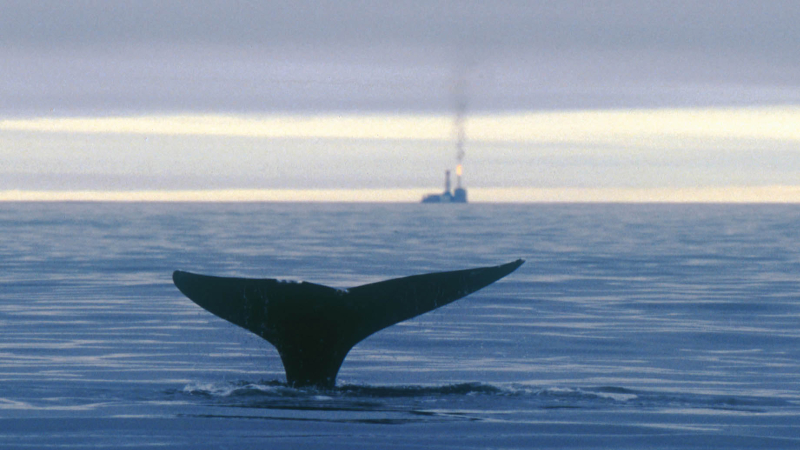Partner News
ABN AMRO Financing for Sakhalin II Poses Huge Risk for Potential Buyers
2007-04-26
| The Hague
Pacific Environment
Doug Norlen, Pacific Environment, Washington DC, +1 (202) 465-1650 (m) Johan Frijns, BankTrack, The Netherlands, + 31-30-2334343 (t), 31-6-12421667 (m) Dmitry Lisitsyn, Sakhalin Environment Watch, Russia, +7 4242 747518 or +7 914 757 0076

Photo: -
2007-04-26
| The Hague
Pacific Environment
Doug Norlen, Pacific Environment, Washington DC, +1 (202) 465-1650 (m) Johan Frijns, BankTrack, The Netherlands, + 31-30-2334343 (t), 31-6-12421667 (m) Dmitry Lisitsyn, Sakhalin Environment Watch, Russia, +7 4242 747518 or +7 914 757 0076
As ABN Amro shareholders decide today on the future of the bank, whether to be taken over by Barclays or dissected by an RBS-led consortium, recent financing of Russia's controversial Sakhalin II oil and gas project will sully the environmental reputation of whichever bank that ends up buying it.
On Tuesday, April 24, 2007, The Moscow Times reported that ABN AMRO Holding and Societe Generale provided US$ 1 billion each to the Russian government controlled gas giant, Gazprom, for its purchase of a controlling share of Sakhalin II. [1]
ABN AMRO's financing of Sakhalin II is grossly inconsistent with its status as a founding signatory of the Equator Principles on environmental and social performance.[2] Sakhalin II threatens critically endangered Western Gray Whales, hundreds of wild salmon rivers, and fishing communities.Sakhalin II also brought thousands of introduced workers to Sakhalin Island, resulting in hyper inflation in housing costs, increased violence and the spread of sexually transmitted diseases.[3] Both Barclays and RBS have adopted the Equator Principles.
"All banks involved in the Great Game around ABN want it both ways; but they can't claim to be environmental leaders while taking over the financing of one of the most ecologically and socially destructive oil and gas projects in the world", said Dmitry Lisitsyn, Chairman of the Sakhalin Island-based Sakhalin Environment Watch.
ABN AMRO and Barclays' association with Sakhalin II will be particularly embarrassing as both attempt to defend their spot on the "short list" of the Financial Times' and International Finance Corporation's (IFC's) upcoming "Sustainable Bank of the Year Award" and Sustainable Energy Deal of the Year Award", respectively.
"The Financial Times and IFC have their own reputations at stake here. ABN AMRO's and Barclay's association with Sakhalin II will be a credibility drag on the whole lot of them"; said Johan Frijns, Coordinator of BankTrack.
ABN AMRO financing of the project may create a furor among fellow Western bankers who last year sharply criticized Russia's apparent expropriation of Sakhalin II and nationalization of the project operator, Sakhalin Energy Investment Company.[4]
"ABN AMRO financing of the Sakhalin-II project condones Russia's nationalistic energy policy and Putin's heavy-handed tactics", said Doug Norlen, Policy Director, Pacific Environment.
What's more, the bank consortium that ends up inheriting the Sakhalin II deal will be entering a project with chronic and severe unresolved environmental problems and associated risks. Despite a recent agreement with SEIC shareholders over Gazprom's entry into the project, the Russian Government has repeatedly and publicly recognized many times that the project is still not in compliance with Russian Law.
"The Russian governments' ongoing confirmation that Sakhalin II violates the law is reinforced by what environmental organizations have documented for years through independent monitoring of the project, and what EBRD has also documented prior to its withdrawal"said Lisitsyn.
[1]http://www.themoscowtimes.com/stories/2007/04/23/061.html: Gazprom Raises $2Bln Loan Gazprom raised $2 billion in syndicated loans to help pay for a controlling stake in Shell's Sakhalin-2 project, Interfax reported Friday, citing an unidentified banker. Two loans of $1 billion each were organized by Societe Generale and ABN AMRO Holding, Interfax reported. Gazprom needs the money to pay $7.45 billion for a controlling 50 percent plus one share stake in the Sakhalin-2 project, Interfax said. (Bloomberg)
[2] The Equator Principles are a set of globally recognized private bank guidelines established to assess and manage social and environmental risk in project financing. According to ABN AMRO's website, the bank "played a leading role in the drafting and subsequent adoption of the Equator Principles by a number of banks" http://www.abnAMRO.com/com/about/sd/sd_policies.jsp
[3] As a result of these severe environmental problems Sakhalin II tried for three years and ultimately failed to win the environmental approval of the European Bank for Reconstruction and Development (EBRD). In December 2006 the EBRD withdrew the project from its consideration.
[4] Sakhalin Energy Investment Company (SEIC) was previously comprised of Royal Dutch Shell (55%), Mitsui (25%) and Mitsubishi (25%). Under the terms of the Gazprom takeover, the Russian government-controlled gas company will have a controlling 51% share, and the other shareholders will dilute their shares by half.
Dodgy Deals
There are no active project profiles for
this item now.
